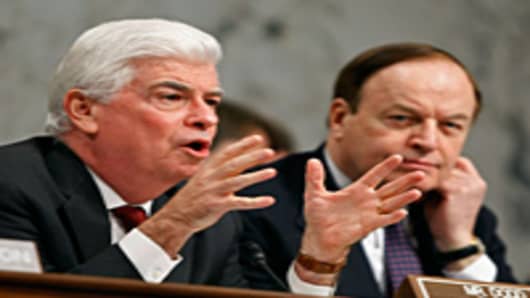Hours before Senate Banking Committee Chairman Chris Dodd is to release draft legislation for sweeping financial reform, the panel's ranking Republican member said his party would meet Democrats "at least half way."
Sen. Richard Shelby of Alabama told CNBC that though he hadn't seen Dodd's bill—scheduled to be released at 2 p.m. ET Monday—he and his GOP colleagues agreed with "85 to 90 percent of it." (See the full interview in the video below)
Sources familiar with the Dodd's draft say it would consolidate banking regulators and create a systemic risk council. It would also create a new consumer watchdog agency within the Federal Reserve.
The provisions are very similar to much of what was reported to be agreed to by Dodd and the GOP's chief negotiator Sen. Bob Corker of Tennessee during a month of discussions aimed at creating a bipartisan blueprint. Shelby was peripherally involved in those talks, having stepped back from the lead role in early February.



